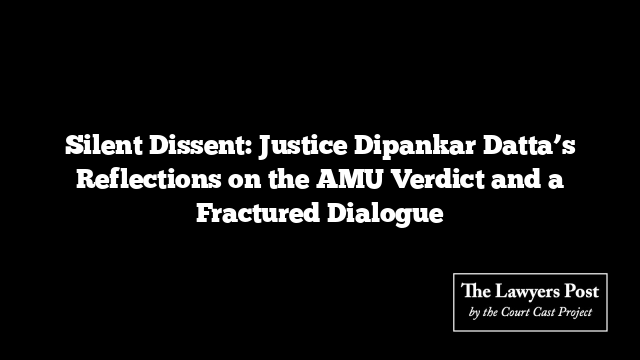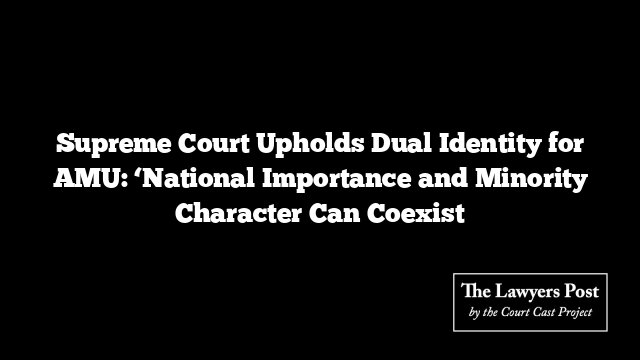Justice Dipankar Datta, serving on the Supreme Court, recently voiced a subtle yet profound frustration regarding the decision-making process in the Aligarh Muslim University (AMU) minority status case. His observations offer a rare glimpse into the judiciary’s inner workings, where a lack of timely, constructive discussion led to personal and procedural challenges.
At the heart of Datta’s dissent was his encounter with delayed drafts of the majority judgment, authored by Chief Justice DY Chandrachud. Justice Datta noted the draft arrived on his desk only weeks before the Chief Justice’s impending retirement, placing immense time pressure on his review and input. He received the initial 117-page document on October 17, then quickly had to navigate additional revisions and last-minute changes.
The situation, as Justice Datta observed, left little opportunity for thorough discussion. He conveyed how, despite his admiration for the Chief Justice’s intellectual rigor, he could not entirely agree with the revised conclusions. Ultimately, he crafted his own opinion, underscoring the absence of a shared venue for the Bench to deliberate openly.
Further insights reveal that Justices Kant and Sharma issued their opinions as late as November 6, leaving Justice Datta to finalize his stance under tight time constraints. He expressed regret over the limitations imposed by such a rushed timeline, noting that his opinion might have been more refined had there been additional time.
Justice Datta lamented the absence of a meaningful exchange among the seven-judge Bench, indicating that a true democratic spirit of dialogue was sacrificed amid the pressure to conclude the case. Only on November 7 did the judges briefly convene to address the varying viewpoints. It was here that Justice Datta’s opinion, diverging from both the majority and two other dissenting judges, received final adjustments.
Ultimately, the majority judgment—upholding AMU’s minority status under Article 30—overruled a 1968 precedent. Justice Datta’s reflections stand as a call for more collaborative judicial processes, urging for spaces where dialogue and consensus can flourish amid the rigorous demands of high-stakes cases.





